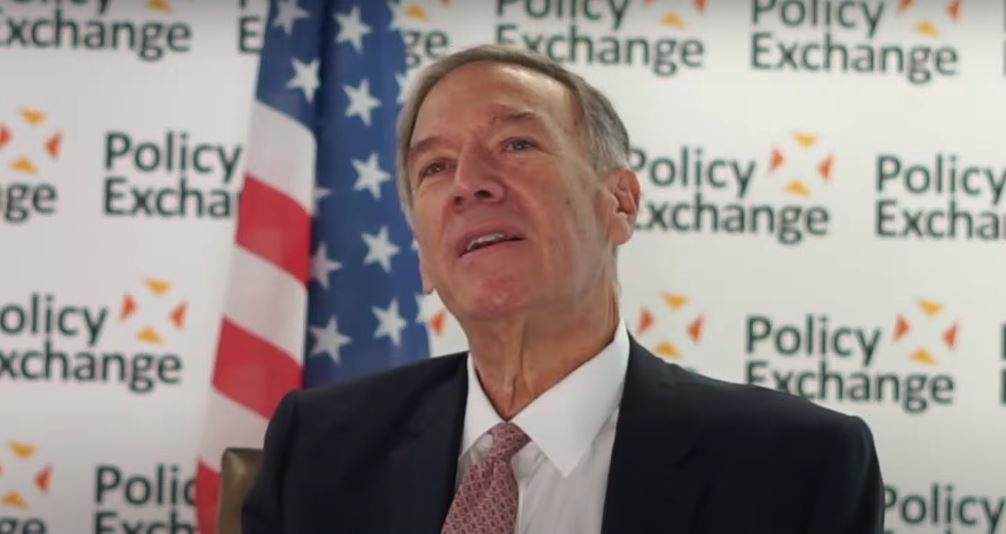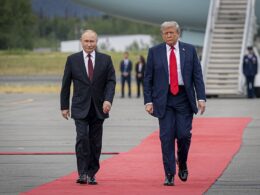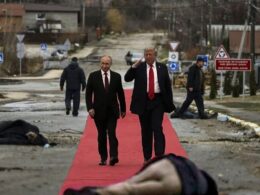Former US Secretary of State Mike Pompeo has strongly criticized the restrictions placed on Ukraine's use of Western-supplied weapons. Speaking at a Policy Exchange think tank event in London on 2 October, Pompeo argued that these limitations have been harmful to Ukraine's defense efforts against Russian aggression.
Pompeo, who served as CIA director and later as Secretary of State in the Trump administration, dismissed concerns about escalation that often accompany discussions of providing Ukraine with long-range weapons. He stated,
"The inability to go after military targets that are across some notional line seems militarily silly and strategically stupid to me, and by the way would have created no more risk."
The former diplomat took aim at the Biden administration's approach to the ongoing Russo-Ukrainian war, criticizing what he perceives as an overemphasis on avoiding escalation and "talking about the things you won't do or won't permit someone else to do."
Pompeo expressed dissatisfaction with the current Western support model for Ukraine, arguing that it has been ineffective in deterring Russian aggression. He pointed out that despite sanctions, "The Russian economy grew faster than the British and American economies for the last 24 months."
The former Secretary of State also criticized NATO's self-congratulatory attitude, stating,
"NATO pats itself on the back: 'Look how well we've done these last two and half years,' [...] if you're a Ukrainian mom you don't feel good about what NATO's done the last two and a half years."
Pompeo's comments come amid ongoing discussions about the extent of Western military support for Ukraine. Ukrainian President Volodymyr Zelenskyy has repeatedly called for the ability to strike targets within Russian territory, arguing that this would enhance Ukraine's defensive capabilities.
The Biden administration has agreed to the use of American weapons along the border to target Russian military targets, but has stopped short of allowing strikes deep within Russian territory. The short-range cross-border strikes have been effective in repelling Russian advances, particularly in Kharkiv Oblast.
However, US officials have maintained that using American-supplied weapons, especially missiles, for strikes within Russia is unnecessary and risks escalating the conflict. Michael Carpenter, Director for Europe at the US National Security Council, recently told Voice of America that "very active discussions" on this issue are ongoing, and that Washington believes "that Ukraine needs to have long-range capabilities that it can use."
Voice of America notes that there have been notable differences among Ukraine's Western partners on this issue. British officials have repeatedly emphasized Ukraine's right to strike legitimate targets on the aggressor's territory, and France has also indicated its agreement. On the other hand, the United States and Germany, the largest providers of military aid to Ukraine, have advocated for restrictions.
The US position on this matter is crucial, as it affects not only American-supplied rockets but also the British-French Storm Shadow/SCALP cruise missiles, whose use is linked to American systems.
Related:
- US: Ukraine free to strike Russia with own weapons without permissions
- US “unimpressed” with Zelenskyy’s “Victory Plan,” WSJ sources say
- NYT: Biden faces pressure to allow Ukraine longer-range strikes on Russia
- Frederiksen: Let’s end the red lines discussion, Russia crossed most important one, entering Ukraine
- CNN: Zelenskyy says long-range weapons ban lift key part of his “Victory Plan”
- UK Foreign Secretary on allowing Ukraine to use Western weapons in Russia: ”Time for nerve and guts”





